EVRE5017 Evaluation and Reflection: Application of Models Report
VerifiedAdded on 2022/11/14
|6
|868
|267
Report
AI Summary
This report, prepared for the EVRE5017 module, delves into the application of reflection models in a work-based learning context. It begins by exploring the concept of reflection and its relationship to evaluation, contrasting the two while emphasizing the value of reflective practice. The report then applies Kolb's reflective model to analyze learning experiences, specifically focusing on week 1 activities, and providing a detailed breakdown of the four-stage cycle: concrete experience, reflective observation, abstract conceptualization, and active experimentation. Further, the report applies David Boud’s reflection model, offering a reflective summary report over ten weeks. The report also includes a personal analysis, setting SMART goals, and outlining personal objectives to enhance learning and professional development. References from various sources support the theoretical framework and practical application of these models within the coursework, enhancing the overall understanding of evaluation techniques and reflective practice. The report concludes by summarizing key findings and reinforcing the importance of reflective practice in bridging academic theory with practical application in the work environment.
1 out of 6
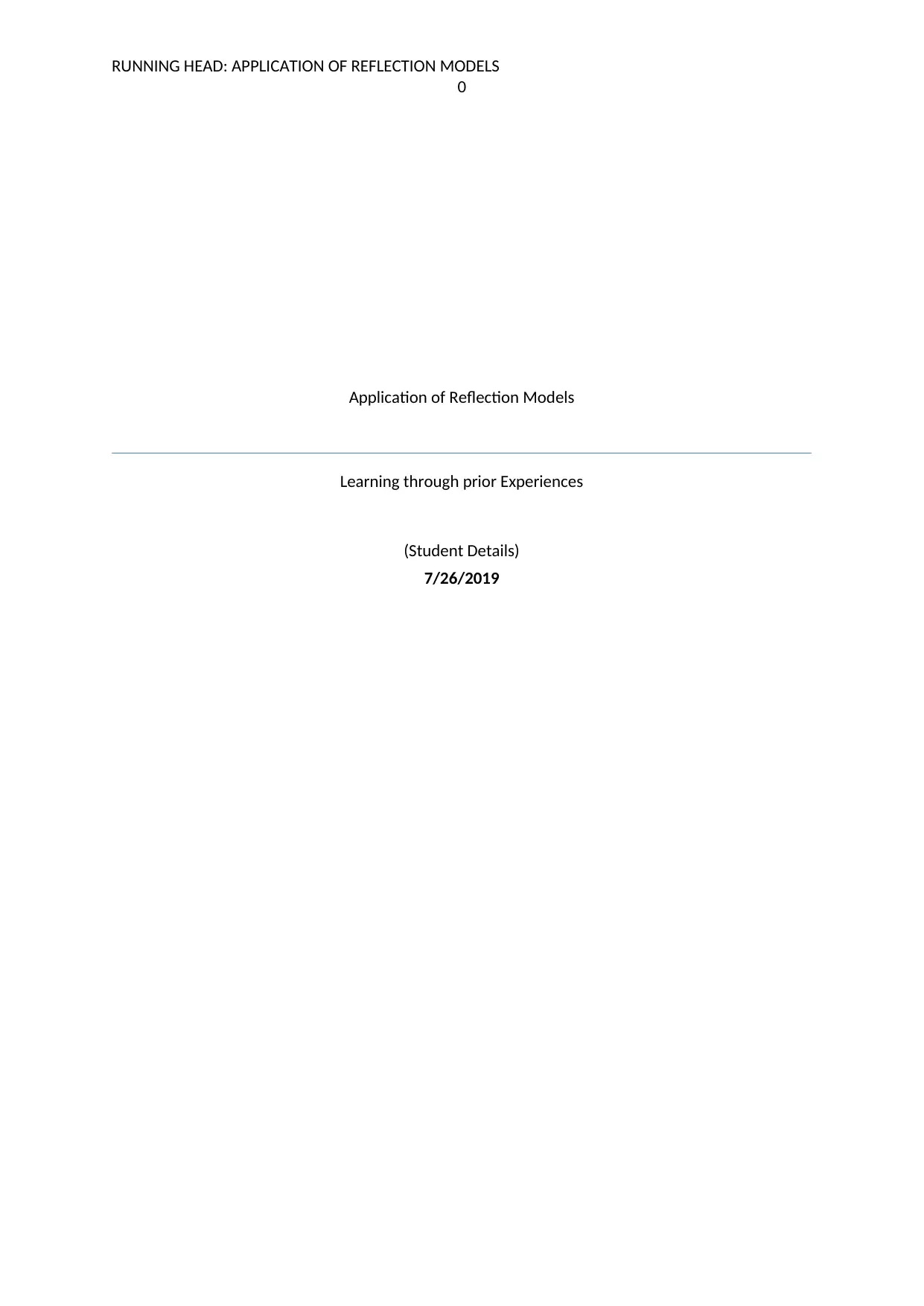
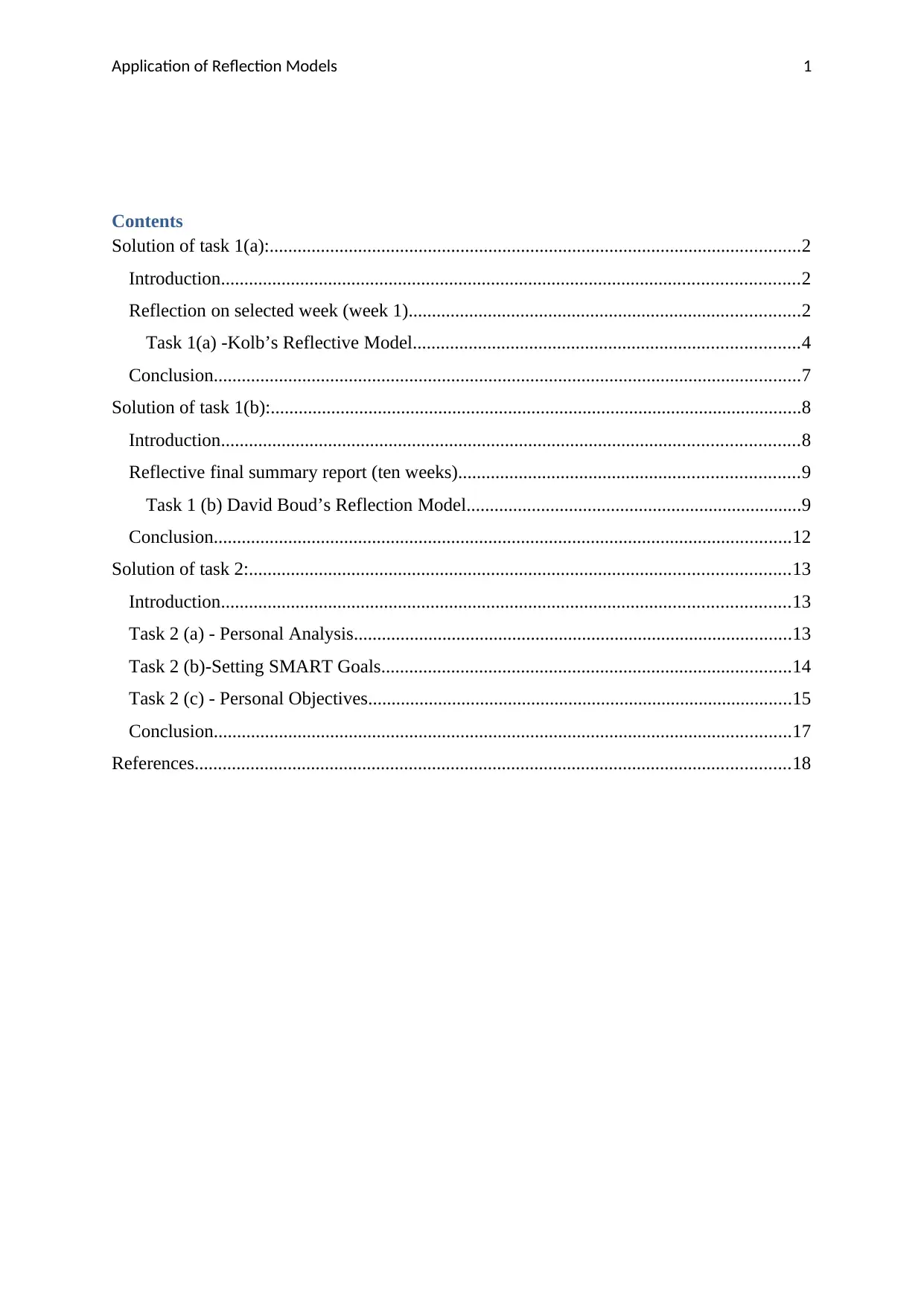
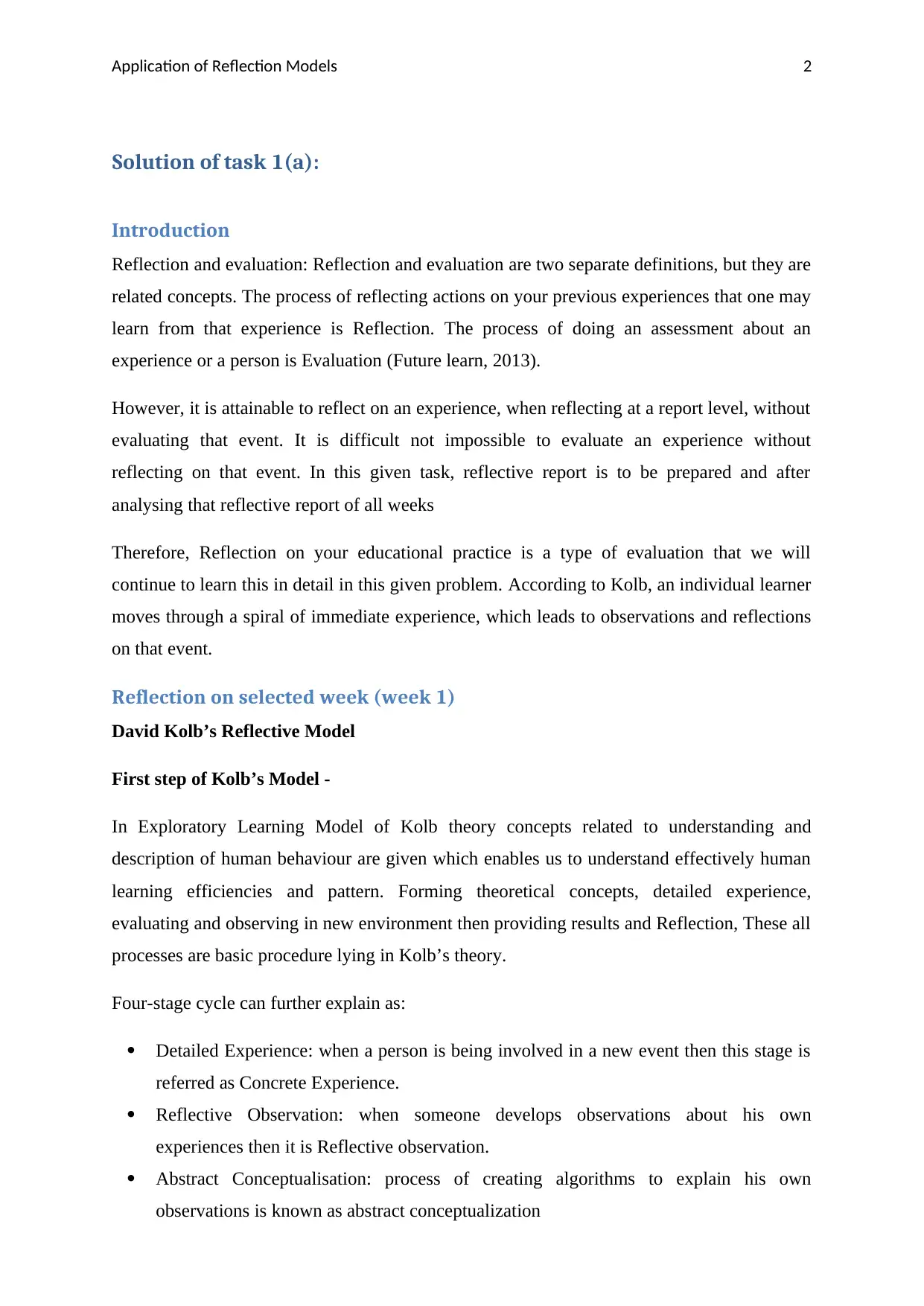

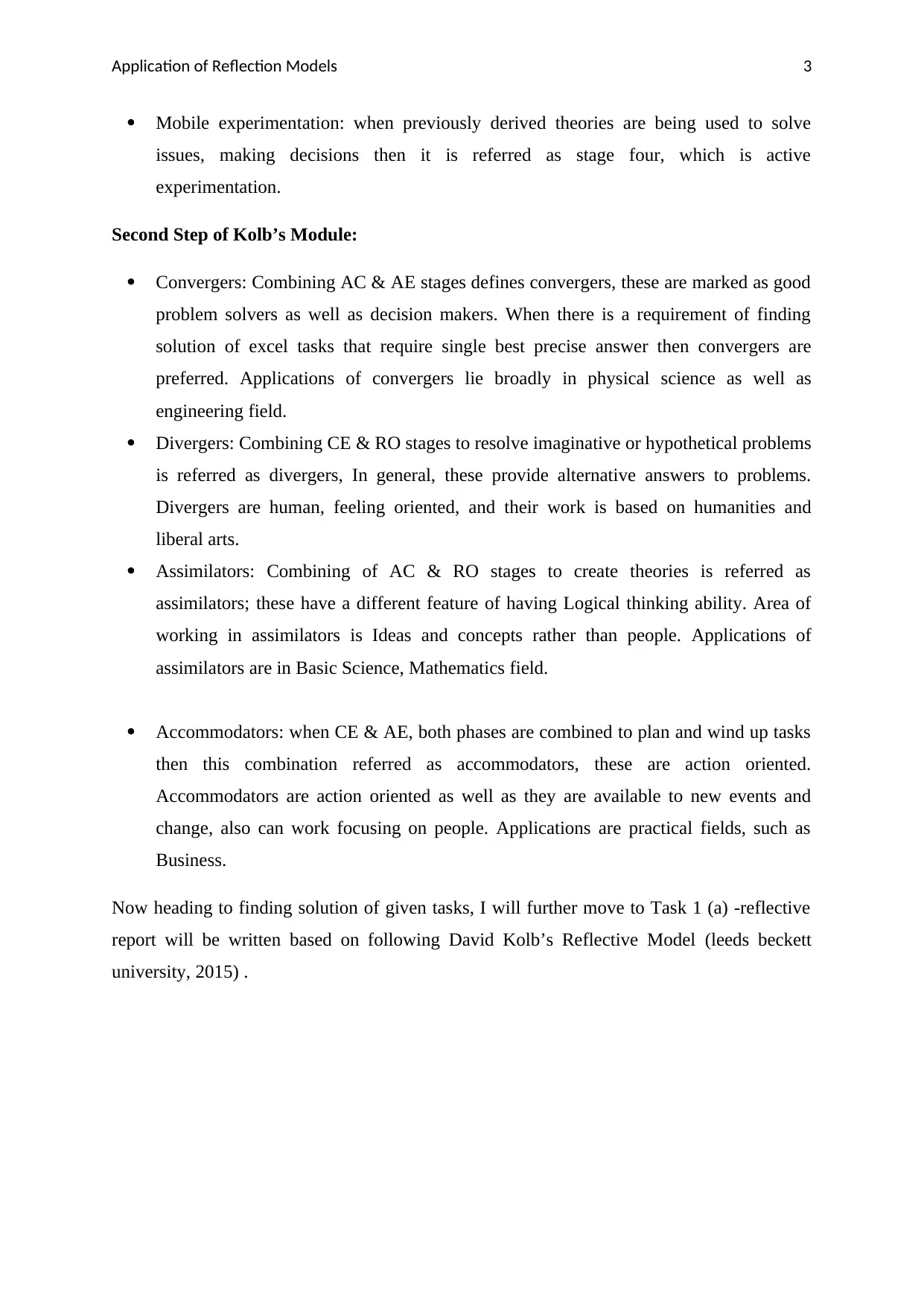
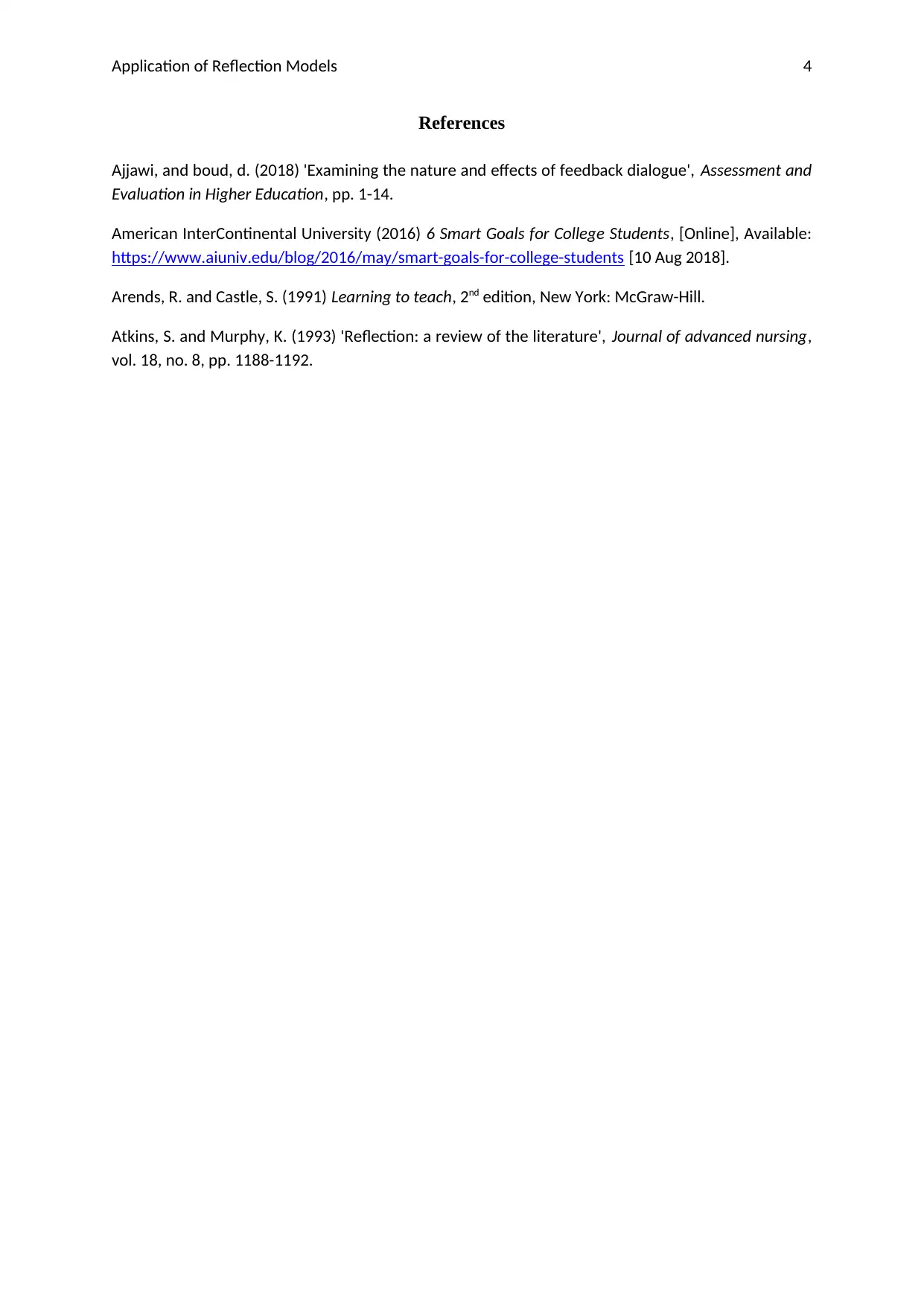
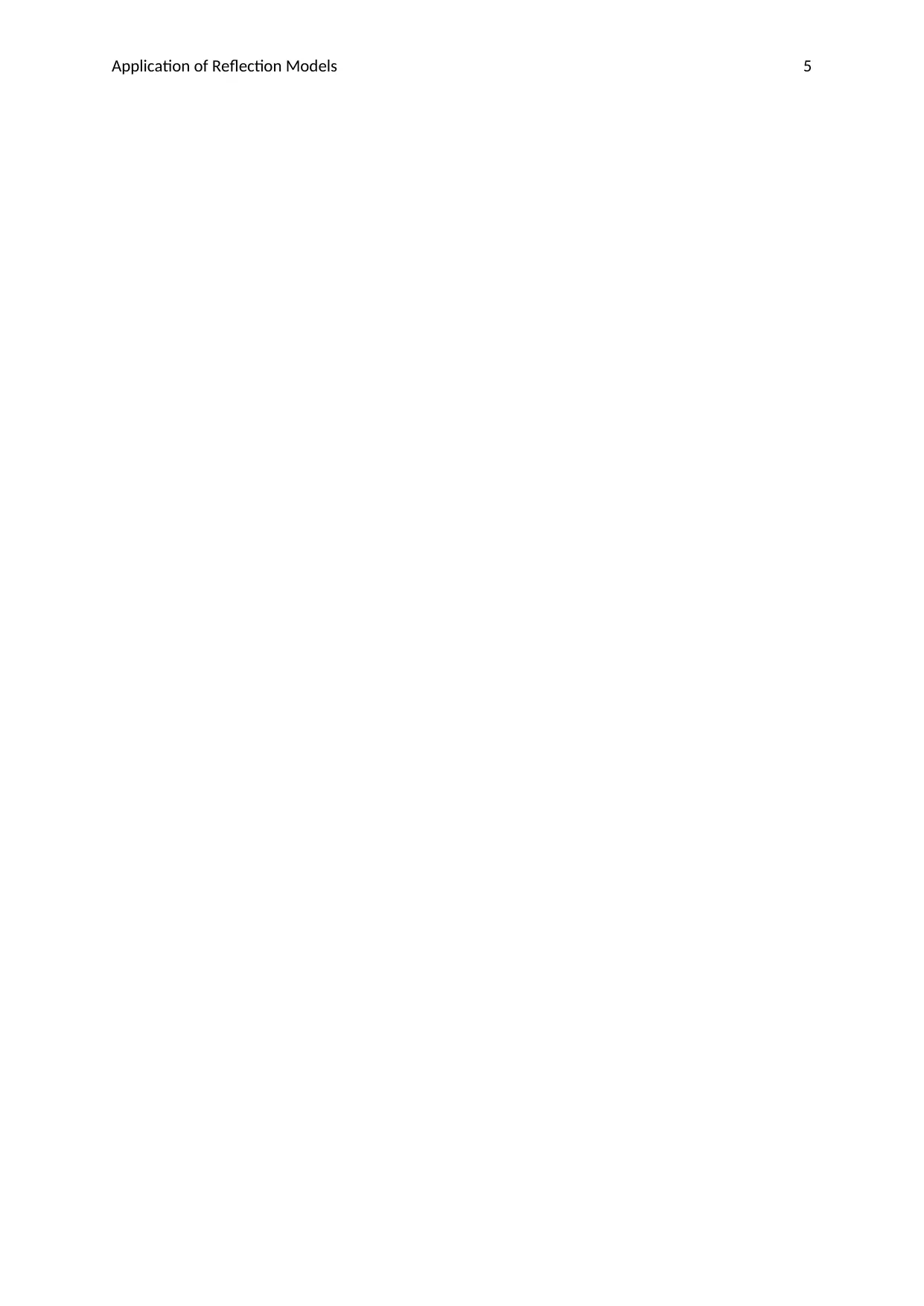






![[object Object]](/_next/static/media/star-bottom.7253800d.svg)